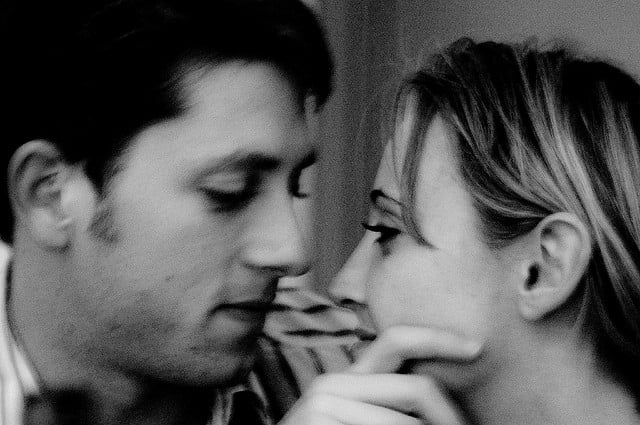
To get the love we want, we have to love ourselves, right?
We’ve heard this so many times it’s practically a slogan.
It is true, of course. You absolutely must love yourself. But do you know why?
If love were something we could get, something outside ourselves that could be acquired, then we would simply need to find the right love deliverer—in other words, the right person.
For those of us who struggle with love, this thought keeps us in a cycle that goes something like this: We meet someone, we fall in love, it’s wonderful—until it’s not. When it’s over, we pick ourselves up, dust ourselves off, and try all over again with someone new.
We do this over and over again because we think the problem is the love deliverer. We think that we need only find that right person, and that right person will give us the love we want.
There is a concept called Advaita, or “non-duality,” taught by several schools of Mahayana Buddhism as well as Vedanta, that expresses one simple, but profound truth: All things that arise in existence are essentially one.
No space exists between any single thing. The consciousness that shines from your eyes is the same that shines from mine. The giver and the receiver are one. The hater and the hated are one. And yes, the lover and the beloved are one. Love is also non-dual.
Until recently, I had a lover who was wonderful in so many ways, but she didn’t quite love me the way I wanted her to. I interpreted those periods when she was emotionally or physically unavailable as signs of fading love. Her withdrawals were always temporary, but they became, in my imagination, a harbinger of an arid, passionless future. I talked to her and expressed my concern, but talking changed nothing, so I complained, then confronted, and finally threatened, as if I could force her to love me in a different way. My actions served only to kill her love.
My lover was never the problem.
Only when I attended a seminar held by James Schwartz on Vedanta did I relearn this simple truth: No one gets the love they want because no one gets love.
Love does not float or fly into us from outside. We do not catch it like a virus. We do not breathe, or drink it in, let alone absorb it like osmosis from another’s aura.
Reality is non-dual. You might experience yourself as one among many, but, according to Vedanta, the lover and the beloved are one. We generate love. All the feelings I have that I associate with love—from the warm and cozy ones, the ones of belonging and security, acceptance and peace, to the painful ones that sour my stomach, shorten my breath, quicken my heart rate, and wake me up at night—none of those feelings come from the outside. I generate them from within.
While often the verb, I am not the object in my life, nor are you. We are always and forever the subject of our own lives and loves.
No one, no thing gives me love. If that were so—that this person can give me love or that object can fill me with love—then everyone would have the identical response to the same person or thing. But I can just as easily ignore the same sunset that fills you with gratitude for the majesty of the world in which we are privileged to live. And while I might instantly melt into my lover’s kiss, you might wrinkle your nose instead.
All of us, each and every one of us, generates the love we feel. I might think someone makes me feel a certain way—loved, ashamed, proud, weak, confident—but those are emotional reactions to whatever it is that person is doing. And that reaction is solely my responsibility.
Your lover can say something wonderful and unexpected and you could feel loved. When your eyes meet the gaze of a stranger, you could feel a stirring in your deepest desires. You might meet someone online, feel your souls connect, and, as your correspondence deepens, you might see the roads of your lives merging into one.
Such experiences are truly wonderful. The funny thing is this: Your lover did not give you that wonderful feeling, that stranger did not create those intense desires, and your online soulmate did not drop into your imagination those visions of a life together. You did.
This is so important to understand, for through understanding this—truly understanding it—comes freedom. You gave yourself that wonderful feeling of being loved. You generated those intense desires. And you created those visions. The other person was a catalyst.
So, if we are our own love generators, what does this mean for our relationships?
First and most importantly, it does not mean that any relationship will do. At a minimum, love must be present; both of you must be basically trustworthy, and the relationship should be more healthy than not. A pathological or abusive relationship will always be unhealthy, no matter how much you love yourself.
With that said, being our own love generator leads to one amazing thing: freedom.
And freedom means we are not dependent upon another for love.
Freedom means you can stop obsessing about why your lover does not give you what you think you need.
Freedom means I can stop ending relationships because she does not love me the way I think I want to be loved.
Freedom means I can start appreciating the love that she does give me, instead of the fantasy love I think I need in order to be fulfilled.
And, most importantly, being our own source of love means we can start looking within for our self-worth instead of hitching it to the love of another.
~
~
~
Author: Todd Schuett

No comments:
Post a Comment